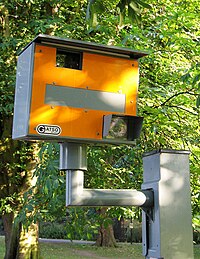
Adapting camera‐trap placement based on animal behavior for rapid detection: A focus on the Endangered, white‐bellied pangolin (Phataginus tricuspis)
Sign Up to like & getrecommendations! Published in 2023 at "Ecology and Evolution"
DOI: 10.1002/ece3.10064
Abstract: Abstract Pangolin species are notoriously difficult to detect and monitor in the wild and, as a result, commonly used survey techniques fall short in gathering sufficient data to draw confident conclusions on pangolin populations, conservation… read more here.
Keywords: bellied pangolin; white bellied; camera; camera trap ... See more keywords

Software to facilitate and streamline camera trap data management: A review
Sign Up to like & getrecommendations! Published in 2018 at "Ecology and Evolution"
DOI: 10.1002/ece3.4464
Abstract: Abstract Improving technology and increasing affordability mean that camera trapping—the use of remotely triggered cameras to photograph wildlife—is becoming an increasingly common tool in the monitoring and conservation of wild populations. Each camera trap study… read more here.
Keywords: trap data; camera trap; management; camera ... See more keywords

Animal Scanner: Software for classifying humans, animals, and empty frames in camera trap images
Sign Up to like & getrecommendations! Published in 2019 at "Ecology and Evolution"
DOI: 10.1002/ece3.4747
Abstract: Abstract Camera traps are a popular tool to sample animal populations because they are noninvasive, detect a variety of species, and can record many thousands of animal detections per deployment. Cameras are typically set to… read more here.
Keywords: camera trap; software; empty frames; trap images ... See more keywords

The effect of habitat and human disturbance on the spatiotemporal activity of two urban carnivores: The results of an intensive camera trap study
Sign Up to like & getrecommendations! Published in 2022 at "Ecology and Evolution"
DOI: 10.1002/ece3.8746
Abstract: Abstract With rising urbanization, the presence of urban wildlife is becoming more common, increasing the need for wildlife‐friendly spaces in urban planning. Despite this, understanding is limited to how wildlife exploits urban environments and interacts… read more here.
Keywords: intensive camera; two urban; human disturbance; camera trap ... See more keywords

Identifying drivers of spatial variation in occupancy with limited replication camera trap data.
Sign Up to like & getrecommendations! Published in 2018 at "Ecology"
DOI: 10.1002/ecy.2396
Abstract: Occupancy models are widely used in camera trap studies to analyze species presence, abundance, and geographic distribution, among other important ecological quantities. These models account for imperfect detection using a latent variable to distinguish between… read more here.
Keywords: occupancy; camera trap; trap data; identifying drivers ... See more keywords

Carolina critters: a collection of camera trap data from wildlife surveys across North Carolina.
Sign Up to like & getrecommendations! Published in 2021 at "Ecology"
DOI: 10.1002/ecy.3372
Abstract: Camera trap surveys are useful to understand animal species population trends, distribution, habitat preference, behavior, community dynamics, periods of activity, and species associations with environmental conditions. This information is ecologically important since many species play… read more here.
Keywords: wildlife; carolina; camera trap; camera ... See more keywords

Economical crowdsourcing for camera trap image classification
Sign Up to like & getrecommendations! Published in 2018 at "Remote Sensing in Ecology and Conservation"
DOI: 10.1002/rse2.84
Abstract: Camera trapping is widely used to monitor mammalian wildlife but creates large image datasets that must be classified. In response, there is a trend towards crowdsourcing image classification. For high‐profile studies of charismatic faunas, many… read more here.
Keywords: image; classification; camera trap; consensus ... See more keywords

Component processes of detection probability in camera-trap studies: understanding the occurrence of false-negatives
Sign Up to like & getrecommendations! Published in 2020 at "Mammal Research"
DOI: 10.1007/s13364-020-00478-y
Abstract: Camera-trap studies in the wild record true-positive data, but data loss from false-negatives (i.e. an animal is present but not recorded) is likely to vary and widely impact data quality. Detection probability is defined as… read more here.
Keywords: camera trap; detection; probability; trap studies ... See more keywords

Assessing the detectability of the Irish stoat Mustela erminea hibernica using two camera trap-based survey methods
Sign Up to like & getrecommendations! Published in 2021 at "Mammal Research"
DOI: 10.1007/s13364-021-00598-z
Abstract: Monitoring small mustelids like weasels Mustela nivalis and stoats M. erminea is challenging as they are rarely seen, leave scant field signs and display avoidance behaviour towards traps and monitoring devices. The Irish stoat M.… read more here.
Keywords: occupancy; irish stoat; camera; camera trap ... See more keywords

Integrating harvest and camera trap data in species distribution models
Sign Up to like & getrecommendations! Published in 2021 at "Biological Conservation"
DOI: 10.1016/j.biocon.2021.109147
Abstract: Abstract Wildlife managers need reliable information on species distributions (i.e. patterns of occurrence and abundance) to make effective decisions. Historically, managers have relied on harvest records (collected at broad spatial extents but coarse resolution) to… read more here.
Keywords: abundance; harvest; species environment; camera trap ... See more keywords

Cost-benefit analysis of increasing sampling effort in a baited-camera trap survey of an African leopard (Panthera pardus) population
Sign Up to like & getrecommendations! Published in 2019 at "Global Ecology and Conservation"
DOI: 10.1016/j.gecco.2019.e00627
Abstract: Abstract The use of baits at camera trap stations has been shown to increase capture rates in population surveys of large carnivores. This study set out to establish the most cost-effective density and duration of… read more here.
Keywords: effort; population; camera trap; cost ... See more keywords